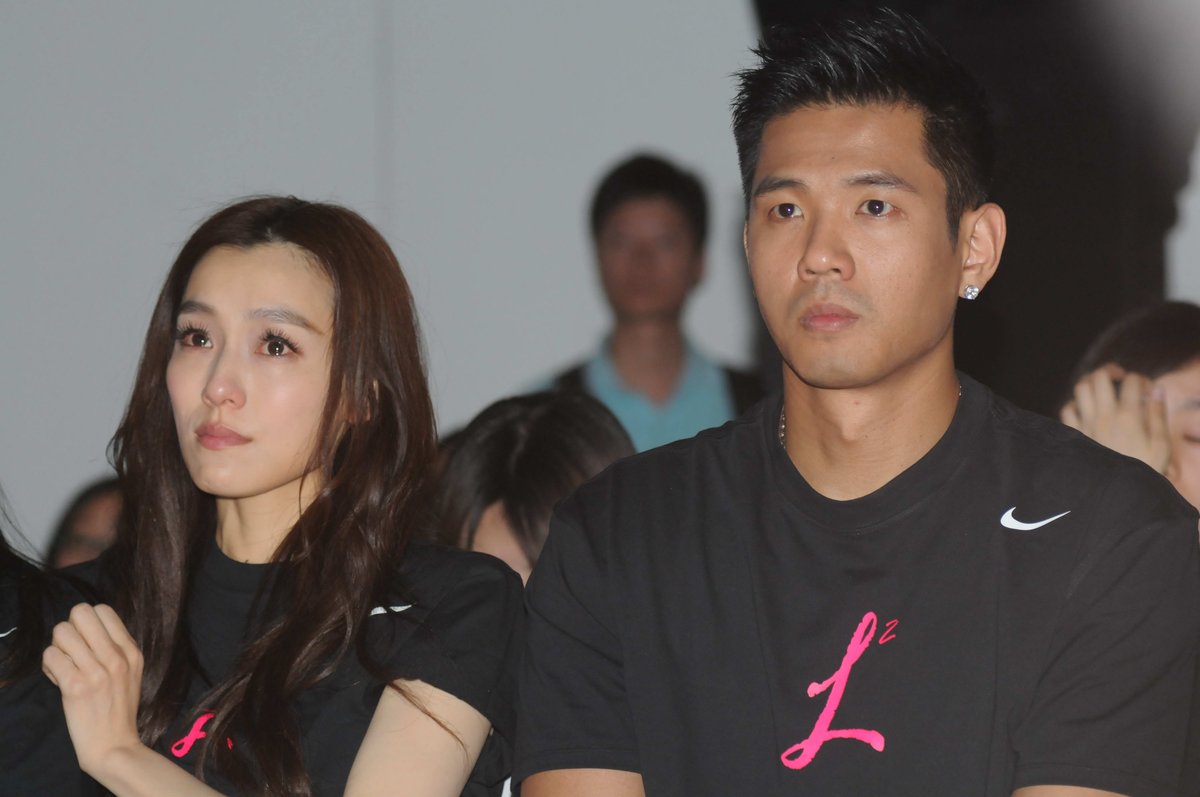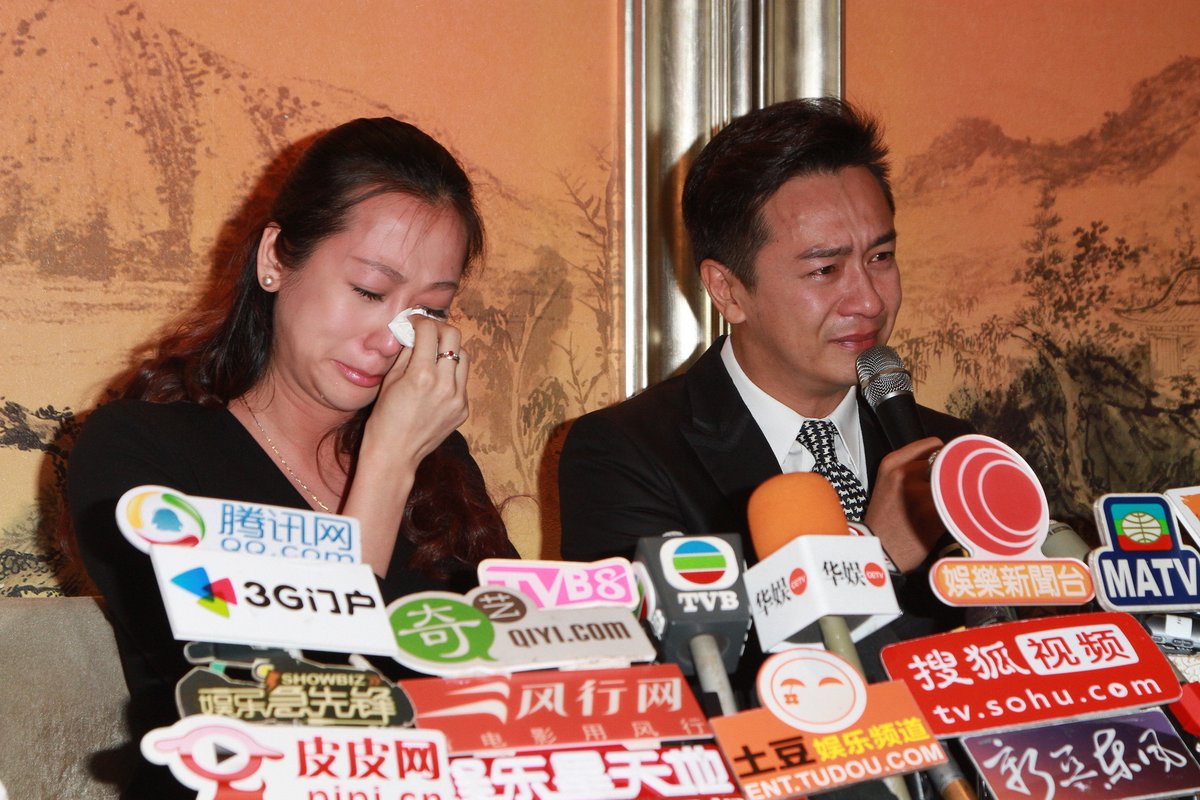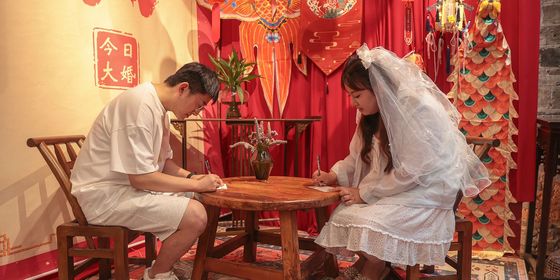“Wife PR,” where female celebrities apologize and show public support for their male partners in a scandal, is facing backlash in China
A storm of controversy swiftly engulfed Taiwanese actor Chen Chien-chou in early July, when actress Da Ya, also known as Tina Chou, accused Chen of sexually harassing her when they worked together in 2012. But it wasn’t Chen who was condemned across social media platforms the following week—rather, it was his wife, singer Fan Wei-chi, also known as Christine Fan.
At the time of writing, the hashtag “Fan Wei-chi’s attitude on Chen Chien-chou cheating” has earned over 790 million views on Weibo, China’s Twitter. After Chen denied the accusations, Fan issued a joint statement on Weibo with her husband, stating their intention to take legal action against Da Ya and requesting a public apology from the actress. Fan also wrote on an Instagram story several days later, “I deeply believe my husband is a man of integrity...I love my husband and will do my utmost to defend my family.”
Netizens saw Fan’s defense of her husband as a sign of complicity and started digging up dirt on her instead: for allegedly lying about attending Harvard University, speaking terrible English, and feuding with other celebrities. Many declared their intention to boycott or request refunds for Fan’s upcoming concert, which was scheduled for September 8 in Taipei but has since been canceled by the organizer with an estimated loss of about 10 million Taiwan dollars (2.2 million yuan).
In the entertainment industry, examples of women publicly supporting their male partners in misconduct are numerous enough to have their own name in Chinese: “wife PR (妻子公关).” In 2011, actor Chan Ho Man held a press conference with his pregnant wife Jiang Lisha to apologize for his drunken harassment of a 19-year-old female artist. Taiwan TV host Dee Hsu has given several interviews explaining that her husband Mike Hsu is simply meeting “friends” when he is photographed hugging beautiful women in nightclubs on multiple occasions throughout their 18-year marriage.
As with Fan’s example, these acts of “wife PR” redirected the public’s attention, and often their ire, onto the female partner, while the male celebrity’s original misconduct was largely downplayed or forgotten.
PR companies trot out female family members of a celebrity to promote public sympathy in a scandal, leaning on the traditional expectation of women to be focused on family and children. “[It creates the expectation that] if people don’t forgive the husband, then the whole family will break up and it’s not going to destroy a husband but a wife,” Ren Jianzheng, a 21-year-old blogger who will begin postgraduate research on gender studies this September, tells TWOC.
On the other hand, the same expectation makes the public judge women’s reactions, or whether she reacts at all, more harshly. “A woman is expected to step out to protect the reputation of her husband because as a woman, you should work hard for a perfect family,” says 27-year-old Chen Yuan, who often shares feminist issues under the handle Hunshen Meimao on social media app Xiaohongshu (RED), and agreed to be interviewed without revealing her real name.
In addition, “If a woman cheated on her husband, then nobody would think that’s the man’s problem. But for a man who cheated on his wife, his wife would be viewed as having failed to control her husband,” says Chen.
China isn’t the only country with examples of women dealing with the consequences of their husbands’ public misconduct. In 1992, Hillary Clinton appeared in a TV interview alongside her husband Bill Clinton, who was then a front-runner for president of the US plagued with accusations of marital infidelity, and famously declared, “I’m not sitting here, some little woman standing by my man like Tammy Wynette. I’m sitting here because I love him and I respect him.” In 2020, when Japanese comedian Ken Watanabe was accused of having extramarital affairs, his wife fashion model Nozomi Sasaki wrote on her Instagram that she would like to apologize for his “unconscionable behavior” and would have a heart-to-heart discussion with him about the issue.
Staying in the marriage is not an easy decision for the wives after a public scandal, but some still choose to be by their husbands’ side for the sake of their children. In 2018, when actor Gao Yunxiang was arrested in Sydney on allegations of sexual assault against an unnamed woman, his wife actress Dong Xuan repeatedly stated that she believed her husband, and even spent about 14 million yuan moving her family to Australia to fight the case. Dong has since been dubbed the “founder of the cult of forgiveness (原谅教教主)” for her apparent blind support of her husband. The couple finally divorced in 2019, and Gao was found not guilty of his charges a year later. Dong said on a reality show Wonderland in July 2022 that she did it all for their child.
Women’s own careers, whether they leave or stay in the marriage, may also suffer from their husbands’ scandals. This June, 51-year-old Taiwanese television host Huang Tzu-chiao was accused of taking nude photos of a 17-year-old girl and forcing her to kiss him in the car. Shortly after confirming the allegation and apologizing for his behavior in a series of videos on Facebook, Huang was taken to the hospital after a suicide attempt. His wife, actress Summer Meng, was left to apologize on Huang’s behalf to the public.
The 31-year-old Meng was renowned for her role in the TV series Sweet Sweet Bodyguard (2012) and was nominated Best Actress at the 53rd Golden Bell Awards, one of Taiwan’s most prestigious TV awards, for her portrayal of a young journalist in Wake Up 2 (2017). She told reporters, “We are one family, so we will face whatever happened together and make up for the mistakes committed in the past.” Meng later announced her departure from a new TV drama she was cast in, reportedly in order to spend more time with her family.
Gender and feminism advocates are divided on the question of how much agency women have when they choose to support their husbands in scandals, and whether they should shoulder a part of the blame for the harm their husbands may have caused to the victims.
Nainai, a 30-year-old influencer on gender issues, tells TWOC that wives are criticized because the public believes they are misusing their platform. “Women in the entertainment industry have more resources... But instead of using them to better themselves, they choose to be dependent on their partner. Especially when their husbands misbehave, their decision to come out and clean up the mess sets a bad example for other women,” she says. “We want women to be independent, both financially and mentally, instead of relying on anyone else. What these women are doing is hindering the development of feminism.” She also believes that when women apologize for their husbands’ affairs, it fosters greater tolerance towards such behavior in the public eye. This shift in focus lets men evade accountability for their misconduct.
Some women may even downplay the impact of scandals just to save face for themselves, according to Alexwood, founder of a podcast on gender issues called Be a Dodo. “For women in a bad relationship, [defensive] statements are a pretty common [reaction]. She may not be trying to defend her husband, sometimes she just wants to maintain her self-esteem or she doesn’t want to be seen as a so-called ‘victim,’” she says. “They will downplay the issue in public to minimize its impact on themselves, but that doesn’t mean they don’t understand what they’re facing.”
Chen Yuan, the feminist influencer on Xiaohongshu, agrees, noting that some women who are public figures also have their own image to maintain and interests to protect. “Because it’s hard for them to get divorced. They need this marriage to ensure their public profile and the wives can’t just detach themselves from the marriage since they’ve been together for many years.” She tells TWOC.
Alexwood believes that rather than shaming women for standing by their male partners in a scandal, it’s important to consider whether they had any other choice. “It’s basic gender relations but in the context of marriage,” she says. “She is also a victim, but she is already in the marriage. Her interests are bound to marriage, which means she may realize that either speaking up for her husband or leaving the marriage is not the best choice.”
Alexwood hopes that the public will be more understanding towards these women, instead of judging or disparaging their character—accusing them of being complicit in the husbands’ bad behavior, or brainwashed. “It’s like when a woman suffers from domestic violence. Perhaps she’s not able to leave immediately...but others will accuse her of not being strong enough. But if she turns against the husband, then she’ll be attacked for being disloyal, or not fulfilling her responsibilities [as a wife],” she says. “So whatever she does, it’s wrong. It’s impossible for her to gain trust and understanding from everyone.”
















